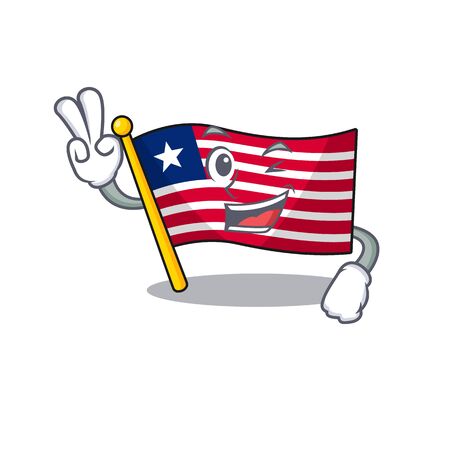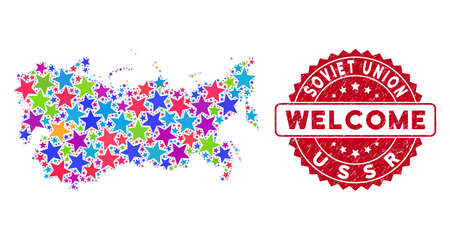1. Introduction: The Language of Dreams and American Identity
Dreams speak a language that transcends words—a language of symbols, emotions, and recurring themes. In the fabric of American life, our dreams often become a private theater where the stories of our collective identity play out. Recurring dreams, in particular, echo the hopes and anxieties that shape us as individuals and as a nation. Whether it’s running late for high school exams or standing beneath the glittering lights of Hollywood, these vivid nighttime narratives reflect the unique pressures and aspirations woven into American culture. By exploring these patterns, we can begin to understand how our subconscious acts as both a mirror and a guide, illuminating the cultural myths, shared values, and societal expectations that make up the American experience. Through the lens of recurring dreams, we find not just personal insight but also a deeper connection to the broader story of who we are as Americans.
2. Hollywood Motifs: Cinematic Dreams in American Nightlife
Hollywood is not just the heart of America’s film industry; it’s also a powerful force that shapes the collective imagination, often finding its way into our dreams. Many Americans experience recurring dreams set on movie sets, running through iconic scenes, or even interacting with celebrities. These cinematic elements do more than entertain—they reveal what we value and aspire to as a society.
Blockbuster Themes and Symbolism
Dreams featuring dramatic plot twists, glamorous red carpets, or high-stakes action sequences are not uncommon. The prevalence of these blockbuster motifs mirrors the American fascination with storytelling, fame, and the possibility of transformation. When you dream about starring in a movie or winning an Oscar, it may reflect a longing for recognition, creative expression, or breaking free from everyday routines.
Common Hollywood Dream Motifs and Their Meanings
| Dream Motif | Common Scenarios | Cultural Significance |
|---|---|---|
| Movie Sets | Being backstage, lost in studio lots, or directing scenes | Desire for control over one’s narrative; fascination with creation and illusion |
| Celebrity Encounters | Meeting or befriending famous actors/actresses | Aspirations for status, admiration, or connection to larger-than-life figures |
| Action Sequences | Chasing villains, performing stunts, saving the day | Yearning for heroism, excitement, and overcoming obstacles |
| Award Ceremonies | Winning or attending Oscars/Golden Globes | Seeking validation, achievement, and public acknowledgment |
The Power of American Pop Culture in the Dreamworld
The omnipresence of Hollywood in our subconscious speaks volumes about how deeply entertainment and celebrity culture are woven into the American psyche. These recurring dream motifs are more than mere fantasies—they’re emotional signposts pointing toward ambitions, insecurities, and the ever-present hope for reinvention. In this way, our nighttime adventures serve as both reflections and roadmaps for our waking lives.

3. The High School Experience: Locker Rooms, Prom, and Teenage Drama
For many Americans, high school is more than just a chapter of adolescence—it’s a cultural rite of passage that leaves indelible marks on the psyche. Recurring dreams set within the walls of American high schools often reflect shared anxieties and ambitions rooted in these formative years. Some of the most common dream themes include wandering through endless locker-lined hallways, forgetting your class schedule, or realizing you’re late for an important test. These motifs capture a universal sense of vulnerability and fear of not measuring up, a feeling many first encounter during their teenage years.
The Locker Room: A Stage for Insecurity
Locker rooms frequently appear in recurring dreams as symbols of exposure and self-consciousness. Whether it’s the anxiety of being unprepared for gym class or the embarrassment of forgetting your clothes, these dreams mirror real-life moments when young Americans are learning to navigate social hierarchies and body image pressures. The locker room becomes a microcosm for personal growth and self-acceptance—a private space where many first confront their insecurities.
Prom Night: A Fantasy of Transformation
Few American high school traditions are as iconic as prom night. Dreams about missing prom, arriving without a date, or experiencing an unexpectedly magical evening reflect hopes and fears about acceptance, popularity, and transformation. For some, prom symbolizes the culmination of teenage aspirations—a Hollywood-worthy moment where one’s destiny can seemingly change overnight. When this imagery appears in dreams, it often signals a longing for belonging or a desire to relive pivotal emotional experiences.
Test Anxiety: The Never-Ending Exam
No exploration of American school-themed dreams would be complete without the classic test anxiety scenario. Dreamers find themselves sitting at a desk with a blank exam paper, feeling utterly unprepared as the clock ticks down. These dreams highlight deep-seated fears about failure and judgment—echoes of an educational culture that prizes achievement and competition from an early age. They remind us how profoundly our academic years shape our sense of self-worth and future possibilities.
Together, these recurring dream themes illustrate just how deeply embedded high school experiences are in the American collective consciousness. From locker room jitters to the glamour (and pressure) of prom night, these dreamscapes serve as emotional touchstones—guiding us back to moments when our identities were still being formed and reminding us that we are all works in progress.
4. Road Trips and Open Roads: Driving Symbols in the American Psyche
The image of an open road winding through vast, untamed landscapes is deeply embedded in the American imagination. In recurring dreams, motifs like road trips, highways, and classic roadside diners often appear as powerful metaphors that echo quintessentially American values—freedom, transformation, and the search for self-identity. These dream symbols resonate with cultural references from iconic cross-country adventures to high school journeys toward adulthood, reflecting not just where we are going, but who we are becoming.
The Open Road: More Than a Journey
For generations, Americans have viewed the open road as an emblem of possibility. From Jack Kerouac’s On the Road to countless Hollywood films, traveling by car across endless highways represents a rite of passage. When these images surface in dreams, they signal a longing for liberation or a transition into new phases of life—a chance to leave behind the familiar and embrace the unknown.
Symbols and Their Meanings
| Dream Symbol | Cultural Reference | Psycho-Spiritual Meaning |
|---|---|---|
| Highways & Interstates | Route 66, classic road movies | Life path, choice of direction |
| Vintage Cars & Convertibles | American muscle cars, “Grease” | Personal freedom, control over destiny |
| Roadside Diners | Norman Rockwell paintings, “Pulp Fiction” | Nostalgia, comfort zones along life’s journey |
| Getting Lost or Detoured | “Planes, Trains & Automobiles” | Anxiety about change or fear of uncertainty |
Dreams as Invitations to Adventure
If you find yourself repeatedly dreaming of driving on highways or stopping at diners beneath neon lights, your subconscious may be nudging you toward new adventures or signaling a time to reassess your life’s direction. The American dream of mobility is not just physical but emotional—a call to explore both external landscapes and the inner terrain of your soul.
5. Sports, Success, and Competition: Dreaming the American Pursuit
In the landscape of recurring dreams, sports-themed scenarios are among the most vivid and emotionally charged, especially in American culture. These dreams often mirror the nation’s deep-rooted love for competition, achievement, and the pursuit of personal bests. Whether you find yourself scoring the winning touchdown under Friday night lights or missing a crucial free throw as the crowd looks on, these dream moments tap into powerful themes of ambition and social expectation that are uniquely American.
The Big Game: Triumph and Teamwork
Dreams where you’re part of a major sporting event—think Super Bowl, March Madness, or high school championship games—often symbolize a desire for recognition and belonging. In American life, sports aren’t just about physical prowess; they represent community, shared goals, and the drama of striving together. When you dream of clinching victory for your team, it may reflect your longing to be seen as a hero or to prove your worth in front of others. The adrenaline rush in these dreams echoes real-life pressures to succeed both individually and collectively.
Missing the Goal: Fear of Failure and Social Judgment
Conversely, dreams about dropping the ball or missing the game-winning shot can evoke anxiety and self-doubt. These scenarios often highlight internalized societal standards—after all, “winning isn’t everything, it’s the only thing,” as legendary coach Vince Lombardi famously said. In America’s competitive culture, falling short can feel like a personal catastrophe. If you repeatedly dream about failing in sports settings, it might be your subconscious wrestling with fears of letting others down or not living up to expectations set by family, peers, or even media icons.
The Deeper Meaning: Ambition and Pressure in Everyday Life
Sports-related dreams go beyond literal athletic aspirations. They serve as metaphors for everyday challenges—job interviews that feel like playoff games, academic tests as high-stakes matches, or even social interactions that carry the weight of a championship point. In a society where “making it” is often equated with constant striving, these dreams remind us how deeply woven success and competition are into the American psyche. They invite reflection on whether our ambitions come from genuine passion or from pressure to conform to cultural ideals of achievement.
6. Home, Hometown, and the Pursuit of Belonging
In the American dreamscape, recurring visions of returning home or wandering through familiar hometown streets are deeply woven with cultural meaning. These dreams often feature classic images: tidy suburban neighborhoods with white picket fences, bustling family barbecues on warm summer evenings, or high school reunions echoing with nostalgia. Such scenes are more than just personal memories; they are shared symbols that speak to America’s collective longing for belonging and acceptance. In American culture, the idea of “home” is not just a physical place—it’s an emotional anchor, a destination in our search for identity and connection. From the migration stories celebrated in Hollywood films to the real-life rituals of Thanksgiving or Friday night football games, the sense of community is both cherished and idealized. Dreams about suburbia or family gatherings reflect the hope that we can always find our way back—to safety, to love, to something that feels unshakeably ours. This pursuit of belonging shapes not only individual destinies but also echoes throughout the American narrative: everyone deserves a place where they are known and welcomed. When these themes surface in our dreams, they invite us to explore how our personal histories and aspirations are tied to a larger story—a story where community, tradition, and a sense of home are guiding lights on our journey toward fulfillment.
7. Therapeutic Reflections: Interpreting and Healing Through Cultural Dream Symbols
Recurring dreams that weave in threads of American culture—whether it’s the glitz of a Hollywood red carpet or the intensity of a high school football game—hold more than just narrative power. They are deeply personal invitations to explore our emotional landscapes, shaped by the collective symbols around us. To begin interpreting these motifs, start by asking yourself: What emotions do these images stir? For example, if you repeatedly dream about failing an exam in a classic American school setting, it may point to underlying anxieties about performance, acceptance, or self-worth, all deeply ingrained in the American pursuit of success.
Recognizing Your Cultural Mirror
Notice which symbols recur most often. Is it the promise of “making it big” in Hollywood, the nostalgia of prom night, or the tension of a family Thanksgiving dinner? Each one is a mirror reflecting not only your inner world but also the broader cultural values and pressures you’ve absorbed. By recognizing these patterns, you can start separating what truly belongs to you from what’s been inherited from societal expectations.
Turning Insight into Healing
Once you recognize these motifs, use them as stepping stones toward healing. If your dreams keep returning to competitive sports scenes—a hallmark of American culture—explore how competition shows up in your waking life. Are you feeling pushed to win at all costs? Understanding this can help you practice self-compassion and set healthier boundaries around ambition and self-worth.
Practical Steps for Deeper Self-Awareness
Journaling about your recurring dreams with attention to their American cultural references is a powerful tool. Write down not only what happened in the dream but also any memories or feelings they evoke about your real-life experiences with those symbols. Talking with a therapist who understands cultural context can deepen this work, helping you unravel old stories and rewrite them in ways that empower rather than limit you.
Ultimately, by honoring the uniquely American symbols within your dreams—and what they mean to you personally—you open doors to profound emotional insight. This process allows you to move beyond mere interpretation into genuine healing, nurturing both greater self-acceptance and a more authentic connection with your destiny.


